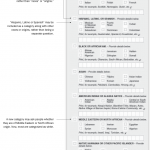By Marty Nemko, PhD
Psychology Today, May 13, 2019.
I’m teaching a graduate course in career counseling. Having remembered little from the mountains I was expected to read when I was a student, I’m ruthlessly curating what I’m having my students read. For example, I’ll be handing this out to my students today. It consists of contrarian ideas that have most helped my clients.

Choosing a career
Following your passion is often unwise. Most people are passionate about one or more of just a few things: sports, nonprofit work, entertainment, environment, media, or fashion. Pursuing jobs in those fields usually means great competition and, in turn, low pay and poor job security. Unless you’re unusually capable, driven, and ideally connected, it’s wise to make such passions your avocation. Focus rather on what ends up being more central to most people’s career happiness: moderate work difficulty, job stability, short commute, good boss and co-workers, and reasonable compensation.
Status is the enemy of contentment. Many people’s career choices are driven more by status than by passion—Many of them choose to be doctors, lawyers, or executives. Because status is deemed important by so many people, the competition is great, and the education requirements have been ratcheted up. After all that effort and delayed gratification, there are many unhappy doctors, lawyers, and executives. Indeed my client pool consists of more people in those professions than any other. It’s often wise to pursue careers in which competition isn’t as fierce, perhaps under-the-radar options such as optometry, program evaluation, higher-education student affairs administration, or many jobs in government.

Choosing a career needn’t be complicated. For example, there’s no need for the Strong Interest Inventory—Interests map insufficiently with skills and with job availability. Nor need one take the Myers-Briggs Type Indicator. It has shockingly poor predictive validity. Nor need you harangue people until they give you an informational interview. It’s usually enough to spend an hour browsing the 250 careers profiled in the Occupational Outlook Handbook or the 340 in my book, Careers for Dummies. Filter them based on whether they use your core attribute or two: words, people, science/technology/engineering/math (STEM), entrepreneurialism, or office detail. Supplement that with a Google search, including videos, on prospective careers—for example, “counseling careers”—and you’ve chosen a career more wisely than do most people.
Government jobs are underrated. Even if you believe that the government is inefficient, glacial, and has too many employees who keep their jobs only because the government rarely fires people, many career seekers will find a government job, particularly a federal one, to be a wise option, especially as the private sector will likely continue to automate, employing part-time and offshore as much as possible. The government will do that less, because it’s politically unpalatable. Government pay and benefits are good, and job security is nonpareil. Plus, older workers and minorities may find it easier to get a government job than a private sector position.
Landing the job

Consider taking the job that drops in your lap. What?! Let life do you, rather than you do life?! Yes, and here’s why: What drops in your lap usually doesn’t drop there at random. Normally, you’re given a job because someone feels you’ll be good at it. And that person—often a friend or family member—may make it easier for you to move up or be more likely to forgive you when you screw up.
Even if a crap gig is dropped in your lap, rather than wait for the “dream” job, you might want to take it: It’s an actual job offer, it gives your life structure and at least some money, and most important, it provides an opportunity to get expert at something.
Let’s take a bottom-of-the-pit job, literally: cemetery ditch-digger. Such a job can be worth taking if you treat it not as, ahem, dead-end, but as a springboard. You must commit to finding something you encounter in that workplace that you want to get expert in and, as soon as possible, use your learning to spring up from that job. Perhaps during your breaks, you could talk to the landscape designer, funeral officiant, monument salesman, casket manufacturer, whoever is around. Once you find something of greater interest, say, cremation, study, study, study—read, talk to people, watch YouTube videos—to learn everything you can about best practices (e.g., where to cremate, how to, ceremonies). For example, you might find a niche in burials at sea, whereupon on learning enough, you use that knowledge to impress a top provider of sea burials to hire you. Keep getting more expert, become involved in the relevant professional associations, and learn general moving-up skills, such as management, public speaking, or business-plan writing.
Can you now see how leveraging a job that falls in your lap can be a more likely path to career contentment than fighting the madding crowds falling over themselves to land a job that pays even decently to sing in Cats, splatter paint on a canvas, or raise money for the Save the Snail Darter Foundation?
Degrees are overrated. Especially if you’ve had difficulty landing a good job, it’s tempting to invest in a degree (or another degree). And sometimes the learning and networking are worth it. But the cost in money and time (what you could have been earning had you not been in school) argues for trying just-in-time learning for jobs you’d love: reading key articles found through a Google search, taking highly rated courses locally or online via LinkedIn Learning, Udemy, Udacity, Coursera, or EdX, and/or getting a tutor or mentor.
Document your learning in a log and submit that with your job applications, explaining that you believe you got more of value from your You U education than you would have from a traditional U education. Attending You U also demonstrates that you’re a self-starter, not needing a professor to flog you into compliance with deadlines and a grade hanging over your head.
Succeeding on the job

Make the most of an internship. Treat even an unpaid internship as an audition for a job. An example may help here. I was on The Today Show. In addition to the director and camerapersons, the large studio was filled with two dozen 20-22-year-old women (Yes, all were women), most of whom were chatting with each other. But one of the women was striding from guest to guest, cameraperson to director to hosts, clearly trying to be helpful to each. When my segment was over, I told her that I was impressed with her industriousness. She said, “Funny you should say that. Our summer internships are just about over, and I was the only one of the 23 interns to be offered a job after graduation—as a producer.” Students must think of their internship as an audition—alas, one in which only a small percentage of auditioners get cast.
Especially if you’re going to accept an internship that pays less than minimum wage, you have the right to vet it carefully. After all, one gig could be a dead-end, the other is a career launchpad. So in interviews, ask questions such as: “What will my day-to-day be like?”; “Tell me about the training I’ll get”; “What percentage of interns (or volunteers) are offered decent-paying work?”; “To what extent can I count on mentorship and, if I’m good, a mentor who will champion me in obtaining a quality paid job?”
Be sure to take microbreaks. Stress builds, so frequent two-minute walk breaks are more helpful than cramming all your de-stressing into 20-minute meditations, let alone weeklong vacations, after which you return to the stress-increasing work that piled up while you were on vacation.
Quick-mine your past. Whatever lessons can be mined from reviewing your past’s dark events usually can be learned from just a bit of journaling. From that point, it’s wiser to focus on suppressing those sad experiences and always taking the next step forward. Additional rumination is more likely to mire you in resentment or sadness than to help you move on.
Soft skills matter. Yes, there will be much automation of jobs, but if, like many Psychology Today readers, you’re a “people person” and qualitatively analytical, recognize that computers are lousy at judgment, especially in person-to-person interaction. You’re not. Build on your qualitative problem-solving skills by practicing, getting feedback, and taking classes on problem-solving within your content domain. Also, build on your people skills: Further develop your strengths in communication and conflict resolution—When you’ve had an unsuccessful interaction, think about why, getting feedback if needed. Learn the art of running meetings—See the article, “Are You Excellent at Running a Meeting?” Becoming a good public speaker would also be a plus—See the article, “Good Public Speaking Without Fear.“
Don’t forget your work-life balance. It is fashionable to extol work-life balance, but based on the experiences of my 5,500 clients, one size does not fit all. Some people, by temperament, need, or choice, prioritize work-life balance, leaving plenty of time for family, friends, recreation, and personal maintenance. Others, however, feel best about their life when it is out of balance: long work days on projects they believe in. For example, Jonas Salk worked 16 hours a day, 7 days a week in his effort to develop a polio vaccine. I’d imagine that most Silicon Valley inventions—from Google Search to the iPhone, cardiac stent to artificial kidney—weren’t created by clock-watchers waiting for the second hand to reach 5:00. Even many people who know they’ll never create a breakthrough product prefer long hours to work-life balance. One of my clients is a cardiologist who chooses to work nights and weekends so he can help more patients promptly.
We’re less malleable than many counselors tell us. It’s usually wise to accept your basic self and focus your change efforts on finding a well-suited job, tweaking it to fit, and making incremental changes in your skillset or attitude.

New York Times, March 23, 2018
A recent review of the literature on intelligence by Harvard’s David Reich in the New York Times underscores the limitations of our malleability. That article asserts the criticality of intelligence, and that it has a significant genetic component.
Alas, eager to give readers hope for great improvement, many career counselors and guides grasp at the conjectural or even at the disproven. For example, that book Switchers tries to persuade readers that major change is possible by citing pop psych premises like “power poses” and “growth mindset,” despite solid research to the contrary (for example, this debunking “power poses,” and this raising serious doubts about “growth mindset”).
How much should parents help their adult child launch their career?
It depends on
- How much help the child needs
- How much help the child wants
- The parent’s ability to help
- The parents’ speaking and listening skills
That said, while the American societal norm is to let the child fly (or crash) pretty much solo after high school, my view is that, on average, more parental involvement is wise. Such a conversation might start by a parent saying something like:
“Of course, I’m proud of what you’ve accomplished, and it’s right that you now get more autonomy. But for what it’s worth, you’re only 21. Having been on this earth a bit longer than you have, I may still have something to offer you. So I’d like to continue being an advisor—You’re now the Godfather, but I’d welcome remaining a consiglieri. What do you think?”
Then listen thoughtfully to your child’s response and adjust the extent of your involvement accordingly.
_______________________________________
Marty Nemko, Ph.D. –Named the San Francisco Bay Area’s “Best Career Coach,” Marty Nemko, Ph.D., has been career and personal coach to more than 5,000 clients and enjoys a 96 percent client-satisfaction rate. The author of 11 books (250,000 copies sold) including Careers for Dummies,












